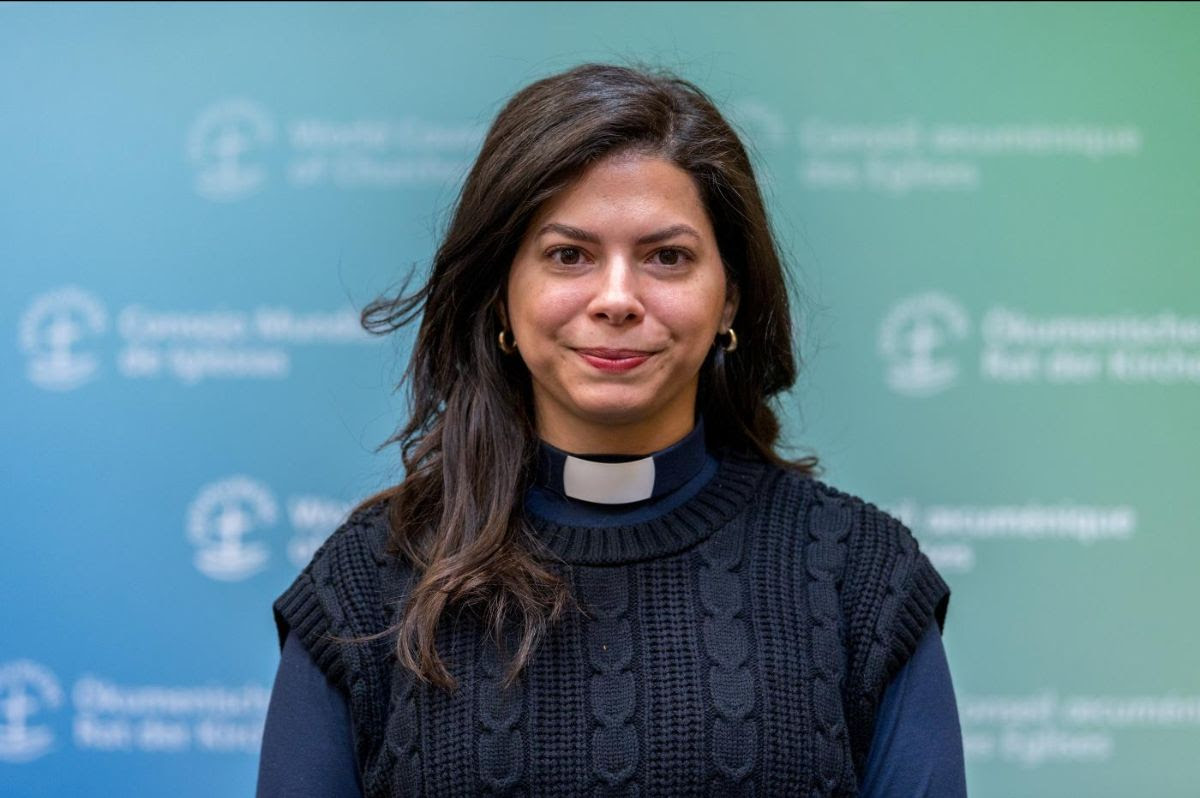What does Thursdays in Black mean to you? Rev. Azar: Thursdays in Black is a day that we remember all the women and all the violence that’s been happening all over the world but especially in my context—in Palestine. It’s not actually quite open to talk about violence in our context—it’s a taboo topic, let’s say—so in many fields, we are working very hard, even through our gender justice office, that we actually have more open spaces for women to share about their experiences. It’s still difficult for a lot of women to do that. It’s still difficult to even say it because we’re such a small community. We’re a minority as Christians and, as Lutherans, especially, we are still also even smaller—so if one thing comes out, everyone would know about it. That’s what people are mostly worried about and that’s what makes them hesitant to share about their experiences of violence. Yet we need to continue having these spaces, making sure that the women have someone to go to when they are experiencing that. I think Thursdays in Black is something universally bringing people together. In that sense, even me as a woman, knowing that there’s a whole world out there, having your back as a woman, as someone who’s experiencing maybe the same things you are experiencing in your own churches, in your own context. It helps make it easier or less heavy on the shoulders, knowing that it’s not only about one part of the world but it’s about all the women being in solidarity with each other on that day, thinking about each other, and praying for each other especially in these circumstances where we know it’s quite difficult for a lot of women out there. Yet we are fighting this together. What is your hope for Thursdays in Black? Rev. Azar: I hope that Thursdays in Black is something that becomes more and more implemented in the churches, not only the churches but also more in organizations. I think this is something that isn’t only limited to the church but it’s something universal for every single group and for every single person around the world. My hope is that this is shared at least in my community and more strongly in interfaith dialogues and interfaith groups. Once a woman sees that there is another woman who’s maybe facing the same thing, it will help her open up even more. I do hope that the women never stay silent because you cannot stay silent when you are facing injustice, when you are facing discrimination, when you are facing violence. You think it’s normal—it is not normal. Always tell yourself that it is not normal. What would you like to share about women in your own context? Rev. Azar: Especially in times like these, when we are going through a war in Palestine—not only in Gaza but in the whole of Palestine—we as women, we share the worries, we share the violence, and the discrimination that is happening against each woman in Gaza. There is so much going on there that people don’t know about—but violence has become increasingly high and yet nobody speaks about it because of the taboo in our context. This is what we need to stand up for. We need to fight it. We need to make sure people around the world know what the women, what the children are experiencing in Gaza. It is not to be justified; it is not to be explained. This is something that is human because they are humans who are living there—and nobody would want to experience that. They have been living through the war. They have been suffering and yet we have only been watching—and yet it is on us to help them to stand together not only on Thursdays in Black but going further—that every day is Thursdays in Black in Gaza. Learn more about Thursdays in Black | 




No comments:
Post a Comment